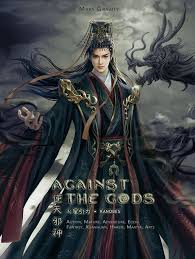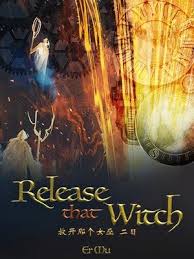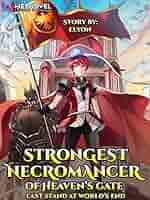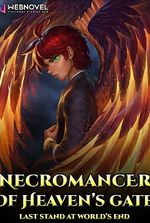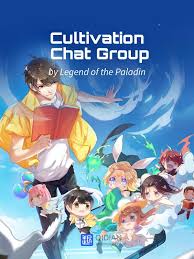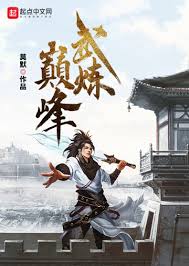The Story in 3 Sentences
Yun Che begins as a disgraced youth in the Cangfeng Kingdom, stripped of status and love, only to awaken the power of the Evil God and the Heavenly Poison Pearl.
His rise from nothing to a force that defies god emperors is fueled by vengeance, divine inheritances, and an unbreakable vow to protect those he cherishes.
From the Ice Cloud Immortal Palace to the edges of the Northern Divine Domain, his journey reshapes fate, breaks heavens, and turns love into a weapon stronger than any profound art.
Why It Stands Out
1. A Protagonist Who Defies Fate — Literally
Yun Che doesn’t climb the power ladder — he burns it and rebuilds it in his image. His strength isn’t just overpowered; it’s mythic, layered with divine bloodlines from the Phoenix, Qilin, Golden Crow, and more. Readers love how he turns every loss into fuel, every betrayal into momentum. He’s not a hero for justice — he’s a man who’d raze the divine realm for one tear from a loved one. “I would rather go against the heavens than lose another person I love” isn’t just a quote — it’s his entire ethos.
2. Power as Bloodline, Not Just Cultivation
In most xianxia, strength is trained. In Against the Gods, it’s inherited — and Yun Che becomes a living archive of ancient legacies. Each divine bloodline grants not just power, but identity: Phoenix for rebirth, Ice Phoenix for endurance, Golden Crow for solar fury. The cost? Pain, isolation, and the burden of being a vessel. This isn’t mindless power fantasy — it’s a mythic evolution where lineage is destiny, and Yun Che refuses to accept any destiny but his own.
3. Love as the Engine of Destruction
Romance here isn’t filler — it’s the core conflict. Yun Che doesn’t fight for glory. He fights because Mu Xuanyin died for him. Because Xia Qingyue was cursed for loving him. Because Jasmine would erase worlds to bring him back. When he declares war on the heavens, it’s not for power — it’s for grief. The novel weaponizes emotion, making every battle feel personal. Fans call it “toxic devotion at cosmic scale,” but for many, that’s exactly why it hits so hard.
Characters That Leave a Mark
There’s Yun Che — a once-carefree youth turned storm of vengeance, whose strength grows fiercer with every loss, every death, every silent vow made in blood.
You’ll meet Jasmine, who hides the fury of the Heavenly Killing Star God behind childlike eyes, guiding him through darkness and unleashing annihilation when he falls — her love not gentle, but absolute and unyielding.
Then there’s Mu Xuanyin, not just a cold empress, but a woman who conceals a burning heart, sacrificing herself in silence — her death the novel’s most devastating moment.
And Xia Qingyue? They’re the one who brings light to exile, a star princess of innocence and loyalty, teaching Yun Che the forbidden Sirius Hell God Code and standing by him when all others turn away.
Chiba Shadow? She’s the one who begins as the proud Dragon Queen Goddess, a master manipulator, only to fall into chains by choice — then rise as a lover, warrior, and pillar of his shattered world, her devotion not submission, but fierce will.
The Flaws Fans Debate
Harem scale dilutes emotional focus — 14 love interests make some relationships feel rushed or unearned.
Power creep turns late battles into one-sided demolitions, stripping tension from god-tier fights.
Pacing drags in middle arcs — tournament cycles and political schemes repeat with diminishing returns.
Ending feels rushed after 4,000 chapters, with peace arriving too suddenly after relentless chaos.
Must-Experience Arcs
Ch.1–200: Yun Che’s fall and rebirth — gains Evil God’s power, Heavenly Poison Pearl, and sets his path of vengeance.
Ch.300–500: Xuanshen Conference — shocks the divine realm, earns enemies, and proves he’s no longer prey.
Ch.800–1200: Mu Xuanyin’s death and war against the divine emperors — the emotional core, where grief becomes war.
Ch.2000+: Northern Divine Domain arc — revenge, resurrection, and ascension to godhood, where he becomes the storm he once feared.
Killer Quotes
“The path to becoming a profound practitioner is not just about cultivating profound strength; it’s also about a constant struggle against fate, against the heavens themselves.”
“What I seek is not to be a good person in this world, but to be the person who can make the people I cherish happy.”
“The sky may be high, but I will still spit on it.”
Cultural Impact
“I would rather go against the heavens” became a meme and mantra across xianxia communities.
Inspired a wave of “defiant MC” stories where love, not justice, drives the rage.
Known for emotional extremes — fans call it “a soap opera with god-killing power levels.”
Huge following on WebNovel and fan translation sites, despite translation gaps.
Frequently cited in debates about harem tropes — praised for emotional weight, criticized for imbalance.
Final Verdict
Start Here If You Want:
An OP protagonist who fights for love, not glory
A revenge story with cosmic stakes and divine bloodlines
Emotional devastation that fuels world-shattering power
Mythic escalation where every loss makes the hero stronger
Study If You Love:
The “wronged hero” arc with relentless escalation
Harem narratives where sacrifice matters
Stories that blend romance, tragedy, and over-the-top action
Xianxia that doesn’t play by fate’s rules
Avoid If You Prefer:
Tight pacing and restrained power growth
Minimal harem or gender-balanced character focus
Subtle emotion over melodramatic declarations
Narratives where consequences linger beyond the next power-up
